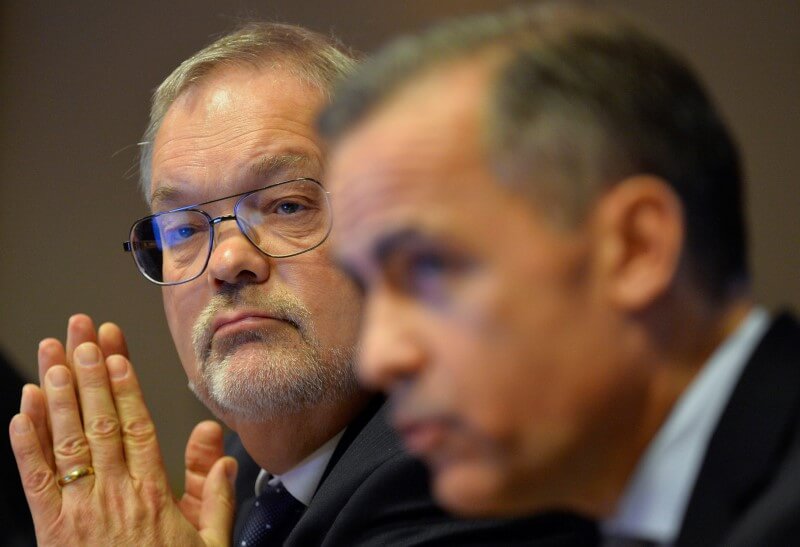By Ana Nicolaci da Costa and Jamie McGeever
LONDON (Reuters) – Britain should expand fiscal policy to stimulate its economy after it voted to leave the European Union, because the Bank of England’s monetary policy has largely reached its limits and is likely to be less effective than it has been in the past, two former BoE policymakers said on Tuesday. The country voted to leave the European Union on June 23 – a decision that could tip the economy into recession, and which led BoE governor Mark Carney to suggest further stimulus “over the summer” was likely. Speaking at a Fathom Consulting policy forum at Thomson Reuters, former BoE deputy governor Charles Bean said that closer coordination between the government and the BoE is needed, since the Treasury has more scope to counter any downturn than the central bank. “I wouldn’t rule it out. I don’t think people at the Bank get their knickers in a twist about not talking to fiscal authorities in the way that you perhaps get in some parts of the EU,” Bean said. Britain’s new finance minister Philip Hammond has said that along with the Bank of England, the government would do whatever it takes to support the economy.
He has also said the government could “reset” fiscal policy, reinforcing the view that this government will take a less aggressive approach to fiscal policy than his predecessor George Osborne who favored tight budgets and spending restraints. Former Monetary Policy Committee member Charles Goodhart warned that Britain’s long-term fiscal position is “dire”, but agreed that the government should step in.
“In the short run, there’s a very, very strong argument for more expansion. But the long-run outlook for the fiscal position of the public sector, in a world in which we are getting older and medical expenses are getting higher, is dire,” he said. With interest rates in the developed world close to zero – even negative in Japan and euro zone – and quantitative easing stimulus already running into the trillions of dollars, many economists argue that central banks have nowhere to turn. This has fueled the debate over so-called helicopter money, the metaphor of dropping money from the sky to spur economic growth and stoke inflation.
Bean said there has been a great deal of misconception about helicopter money, which in his view is essentially a joint bond-financed fiscal easing with the central bank buying the government’s bonds but never redeeming them. “People who think there’s some untried monetary instrument (called) helicopter money are kidding themselves. All it is a fiscal action combined with a bit of conventional QE,” he said. Bean said that the Bank still has options, such as expanding the array of assets it buys beyond government bonds, such as corporate debt or even equities. But that is entering fiscal territory and could be politically difficult. “If you go into buying equities, as the Bank of Japan has dabbled with … that is taking the Bank into quite political territory. If there was a decision to go that way it should be in conjunction with the Treasury,” Bean said. Business surveys since the referendum have shown a slowdown in services, manufacturing and construction, and consumer confidence has tumbled.
Almost all economists in a Reuters poll expect the BoE to cut interest rates by 25 basis points on Thursday but are divided on whether it will revive its bond-buying program.
Bean and Goodhart said that the BoE had raised expectations for some sort of action on Thursday so high that its credibility could be on the line if it didn’t deliver.
“The Bank has rather boxed itself in by the statements that have been made,” Goodhart said.
“There’s so much assumption that the Bank will cut rates that even though the effect of that will be minimal, they will do it, because not doing it would have an adverse effect on their credibility.” The BoE surprised markets in July when it kept interest rates on hold, despite widespread market bets that it would deliver its first rate cut since 2009.
But in light of incoming surveys and in particular the latest purchasing managers index data, “some sort of action seems to be entirely warranted,” Bean said.
(Editing by Larry King)
Britain needs fiscal boost as monetary policy reaches limits, ex-BoE officials say

By Ana Nicolaci da Costa and Jamie McGeever
















